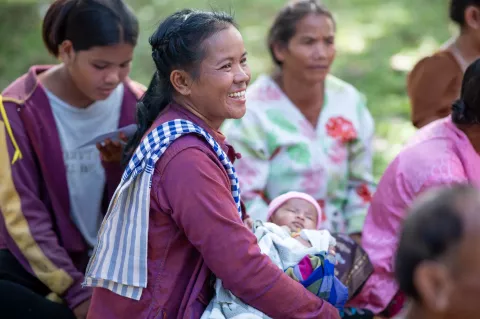Landscape Analysis for Childhood Overweight and Obesity in Chengdu, China
Childhood Overweight and Obesity

- Available in:
- 中文
- English
Highlights
Chengdu City, one of the most populated cities in China, comprises both urban districts and rural counties and is moving towards becoming a Child-Friendly City with the core objectives of protecting children’s rights and improving their well-being. To help tackle the increase in childhood overweight and obesity, the National Health Commission (NHC), and UNICEF selected Chengdu as a pilot city to carry out an Urban-based Nutrition Programme (UNP) to demonstrate city level actions that could reduce the rapid acceleration of child overweight and obesity in China. This city-based model is part of China’s commitment to meeting the targets set under the National Nutrition Plan.
A landscape analysis was undertaken in early 2021 as the first step of establishing this UNP model with the objective of identifying a set of priority actions to address the existing gaps in policies and programmes. It involved two surveys,1 a literature review, interviews with key informants and a validation workshop. The work was a joint effort by the Chengdu Health Commission, Chengdu Centre for Disease Prevention and Control (CDC) and Chengdu Women’s Federation - the lead agency of Chengdu’s Child Friendly City (CFC) Taskforce.
1 One is the Chengdu Landscape Analysis Survey, which includes stratified cluster sampling surveys of 2,725 students, 2,782 caregivers, and teachers and administrators from 22 primary, junior secondary, and senior secondary schools, which collected dietary intake and physical exercise activity data on school-age children. The other one is a small sample survey of 125 new mothers in the Pengzhou district of Chengdu on exclusive breastfeeding using the standard questionnaires and methodology recommended by WHO and UNICEF.





